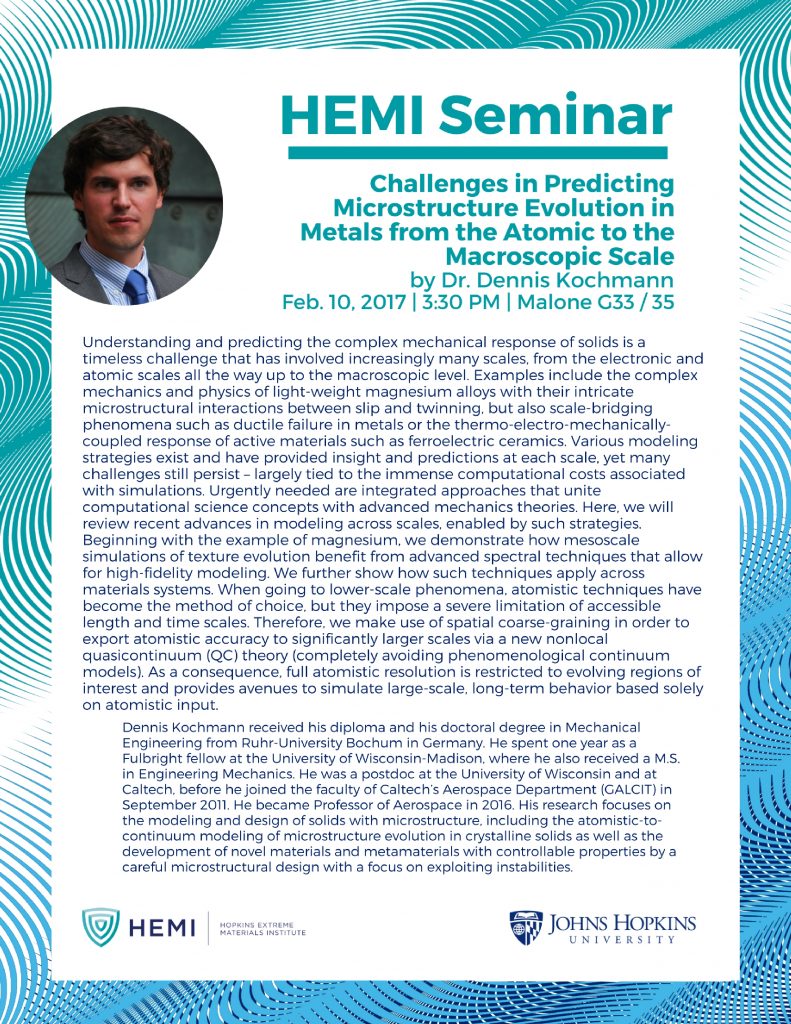February 10, 2017 @ 3:30 pm - 4:30 pm
Event Navigation
Challenges in predicting microstructure evolution in metals from the atomic to the macroscopic scale
Dennis M. Kochmann
Graduate Aerospace Laboratories
California Institute of Technology
Understanding and predicting the complex mechanical response of solids is a timeless challenge that has involved increasingly many scales, from the electronic and atomic scales all the way up to the macroscopic level. Examples include the complex mechanics and physics of light-weight magnesium alloys with their intricate microstructural interactions between slip and twinning, but also scale-bridging phenomena such as ductile failure in metals or the thermo-electro-mechanically-coupled response of active materials such as ferroelectric ceramics. Various modeling strategies exist and have provided insight and predictions at each scale, yet many challenges still persist – largely tied to the immense computational costs associated with simulations. Urgently needed are integrated approaches that unite computational science concepts with advanced mechanics theories. Here, we will review recent advances in modeling across scales, enabled by such strategies. Beginning with the example of magnesium, we demonstrate how mesoscale simulations of texture evolution benefit from advanced spectral techniques that allow for high-fidelity modeling. We further show how such techniques apply across materials systems. When going to lower-scale phenomena, atomistic techniques have become the method of choice, but they impose a severe limitation of accessible length and time scales. Therefore, we make use of spatial coarse-graining in order to export atomistic accuracy to significantly larger scales via a new nonlocal quasicontinuum (QC) theory (completely avoiding phenomenological continuum models). As a consequence, full atomistic resolution is restricted to evolving regions of interest and provides avenues to simulate large-scale, long-term behavior based solely on atomistic input.
Seminar will begin at 3:30 PM in Malone Hall, G33/35.





